Attitude spoke to people whose partners stayed despite life changing spinal cord injuries (SCI) and met those who weren't so lucky.
The topics discussed in this article are real issues with real consequences. No judgement should be made on those who walk away.
Rebecca Allum has experienced the best and worst of responses.
A successful equestrian, Allum was thrown from her horse while riding six years ago - sustaining incomplete fractures of her C4, C5 and C7 vertebrae and became a tetraplegic.
She was told she’d never walk again. At the same time, her partner of 3 years broke up with her over text while she was still recovering, saying he couldn’t handle it all. He then blocked her email, phone number and social media.
Left alone with her dark thoughts, Allum was shocked when months later her ex contacted her. He seemed preoccupied with whether she would ever be able to walk again. After hearing that her recovery was progressing well, he suggested the couple move back in together. Allum agreed. She now recognises the vulnerable state she was in, looking for a glimmer of hope. Perhaps things could be as they had once been. He’d had time to reflect on her situation after all.
Unfortunately this was not to be the fairy tale that Allum had hoped for. She ended up for the first time in her life having to report domestic violence. Allum had spent hours lying on the floor of her own house after being thrown from her wheelchair. When her son returned home he found her motionless, unable to move.
“I had to ask my son to call the police,” Allum says.
Her phone and wallet were found outside the house in an inaccessible location, deliberately placed out of her reach.
Adding to an already stressful situation, Allum’s daughter moved out soon after. She was tired of the disturbances from carers coming and going and the fact that the house was starting to look like a hospital.
Love has chapters. We’ll get to Chapter 2 for Rebecca Allum later on.
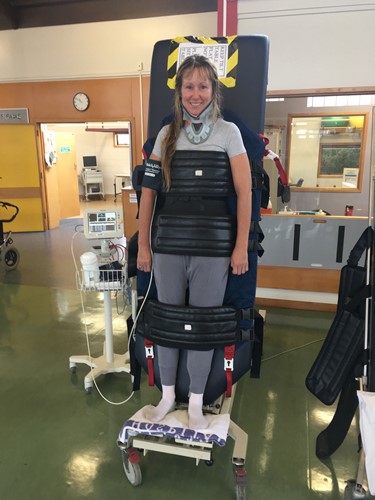


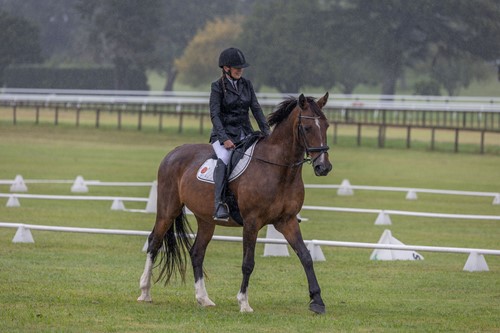
The challenges of living with someone with a SCI are serious : halved household income (at least for a while), changes to childcare, cooking and cleaning responsibilities, resentment at lifestyle changes, house modifications, high level caregiving duties, psychological trauma and intimacy problems.
Caregiving and spinal cord injuries go hand in hand. Most paraplegics have a caregiver.
Assistance required may be bowel and bladder care, pressure sore prevention, bathing, dressing, medicating, feeding and transferring from the wheelchair, which can require a hoist. Spinal injury patients usually receive a compensation package from ACC that pays for this care.
Gold medal Paralympian and Independent Living Advisor for the Burwood Spinal Unit, Sholto Taylor says where it can go wrong is when partners decide that it makes more financial sense for them to be the primary carer and quit their job.
Just because you can, doesn’t mean you should.
Based on his experience working with over 100 patients and their whanau as they recover from SCI, Taylor’s seen resentment from partners about giving up a career and communication breakdowns. This may be when care given is not at the standard required. A partner caregiver may also refuse to do tasks that are essential to the patients wellbeing or do them to their own timeline, not the patients.
His suggestion? “Hire a professional”.
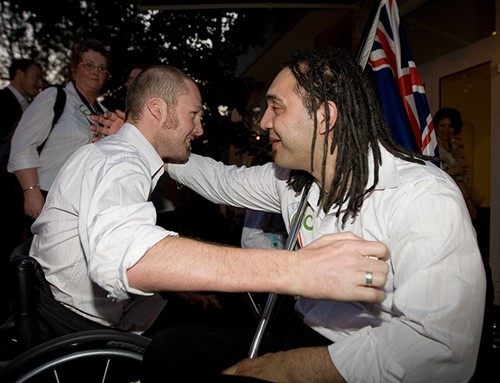

Most people who have been involved in a serious accident that has damaged their spinal cord will end up in a Spinal Unit. There are two in the country, one in Auckland (Otara) and one in Christchurch (Burwood).
As an Indepent Living Advisor, Taylor is involved in all aspects of rehabilitation after a patient experiences a life changing injury. He’s been on his own journey, having been in a wheelchair for over 30 years, but for today he’s focussed on getting new patients to where they want to be.
Over the years he’s seen the majority of people he’s worked with manage to keep their relationship intact. Loved ones don’t even have to be separated whilst recovering.
“We have accommodation for partners and family members available. Partners are often heavily involved in rehabilitation. It can work, and in many cases it does”.
Taylor has noted three key factors at play that seem to determine whether a relationship is likely to survive a spinal cord injury : maturity, duration of the relationship and caregiving.
“Younger people may recover faster but mentally they find it harder to adjust. Men in their teens or twenties in particular were often living an exciting life pre-accident. Fast living, actively involved in high level sport, chasing women and money, risk taking and full of energy,” he says.
At a younger age, the psychological adjustments can take longer, and this can negatively impact on any pre-accident relationships.
Taylor believes long lasting relationships often stand the test of injury because both parties share a deeper commitment to making it work. It’s the relationships that have only been around for a shorter period of time where the non disabled partner thinks “I didn’t sign up for this.”
Warren Wihapi and wife Josephine prove this point. Together for over 40 years, when medication error resulted in permanent damage to Josephine’s spinal cord, Wihapi barely missed a beat. Overnight his able bodied wife who worked in the healthcare industry was in a wheelchair requiring round the clock care and unable to work. His employer stayed loyal to their man, allowing him the time off work he needed to be by her side and get everything in place. Josephine now has a carer during the day and Wihapi takes over when he gets home.
When asked if he ever thought about leaving, Wihapi says “Never. Not even for a moment. She’s my wife.”

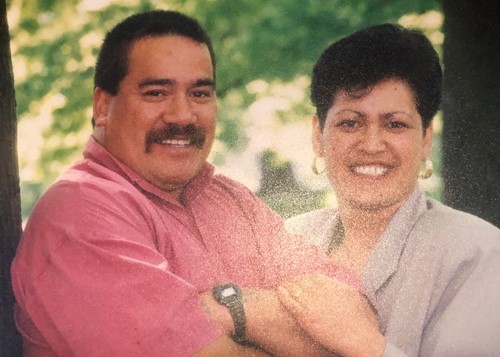
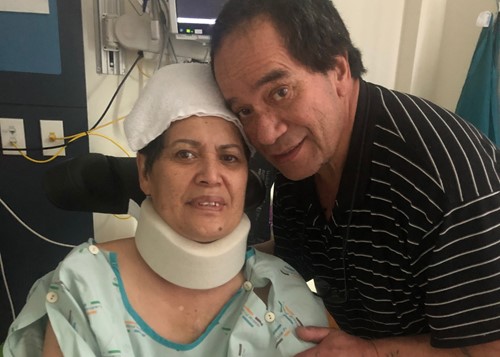
Sometimes you just have luck on your side. Or you’ve really found “the one”.
Taranaki local Hannah Robinson was young and in love. She’d been dating her boyfriend Ian on and off for about a year. On a summer roadtrip, they decided to take a dip in the pool on a hot day before heading to the next destination.
That decision led to a broken neck and near death experience. Her partner's quick intervention saved her life after she dived into water that was too shallow. The “party girl” lifestyle Robinson says she was living was over immediately. Without her boyfriend coming to the rescue, Robinson would have drowned. In her early twenties at the time, she was sure the relationship would be over.
“I gave Ian permission to leave” she says emotionally.
Ian refused to leave and remained by her side through hospitalisation, surgery and rehabilitation. He’s still by Robinson’s side today, and feels lucky to be.
Robinson credits her husbands ‘healing hands’ in part for her recovery. He would massage her feet and her legs in the months post accident in an attempt to encourage relaxation, restore function and blood flow. He may have a gift, as Robinson reports seeing movement in her big toe after a massage session.
Since the accident, Hannah and Ian have had children together, bought a home and enjoyed a loving and long lasting relationship. They decided to hold off on marriage until Robinson was able to walk down the aisle.
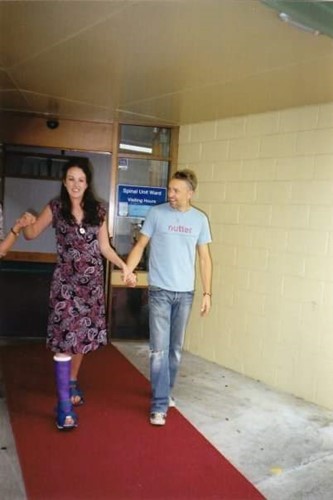

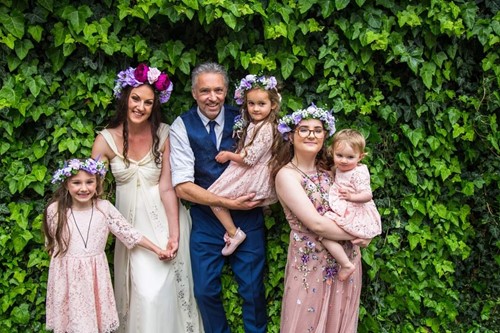

Through hard work and determination, supported by her parents and Ian’s never ending love, she made it.
“Ian definitely does more than your average husband would do, but I feel like he would have done the same even if I hadn’t gone through a spinal cord injury. That’s just who he is.”
Remember Rebecca Allum? She got her fairy tale ending after all. New man Nigel recently proposed to her on a cruise. They met post-accident at a bar after talking online. She’s also back riding her horse, using voice commands. Her hands on the reins are just for show.
“Rebecca was very upfront about her injury on her profile. It didn’t bother me,” Nigel says in a documentary filmed for Attitude.
Allum says that although her fiance Nigel is now accustomed to her using the wheelchair, when she met him for the first time she decided not to use it. He admitted that had Allum been in the electric wheelchair it may have been too much.
Previously in the customer service industry, Nigel quit his job and is now one of Allum’s caregivers. They admit it changed the dynamic of the relationship and would advise people to not do what they have done.
“We had to work hard at it. We went through counselling to make this work”, Allum says.
Which is a reminder that love can conquer all, you just have to work at it.



